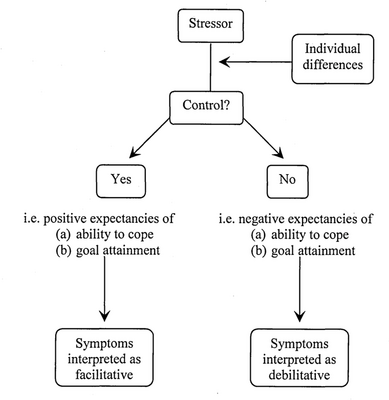
Understanding Pre-Competition Anxiety: Symptoms and Causes
Anxiety is characterised by worry, nervousness, and apprehension whilst also associated with arousal or activation of the body. There are two distinct components of anxiety, cognitive anxiety which refers to the thoughts we have (worry and apprehension for example), and somatic anxiety which refers to the degree of physical activation perceived. The amount of anxiety one feels varies depending on the person and the situation.
Trait anxiety - A part of a person's personality and behavioral disposition to perceive non-threatening circumstances as dangerous and respond to them with disproportionate state anxiety.
State anxiety - An emotional state characterised by the subjective perceived feelings of tension and apprehension, accompanied by the arousal of the autonomic nervous system. To put it simply, the anxiety we feel in a certain situation is ever-changing depending on the circumstances.
Pre-competition anxiety is concerned with the levels of anxiety one feels before a competition and is something every athlete experiences. It is characterised by feelings of nervousness, worry, and tension, and can manifest in physical symptoms such as sweating, rapid heartbeat, and trembling. This anxiety can be caused by a variety of factors, including pressure to perform, fear of failure, and uncertainty about the outcome.
Model of facilitative and debilitating anxiety
An individual's interpretation of anxiety symptoms is crucial in understanding the anxiety-performance relationship. People can either view the symptoms of anxiety as facilitative to performance (helpful) or debilitative (harmful). Considering the intensity (how much anxiety they feel) and direction (interpretation of the anxiety) is also important in the anxiety-performance relationship.
Jones's (1995) model of facilitative and debilitative anxiety explains that when a stressor occurs, such as playing in a big final, how much anxiety an athlete experiences depends on individual differences such as trait anxiety and self-esteem. The most significant aspect of this model and whether someone perceives the state anxiety as facilitative or debilitative depends on the perceived control of the athlete. Simply put, whether the athlete feels as though they can cope with the anxiety they are experiencing. Strategies can be developed and utilised to help support the perception of control and whether anxiety is perceived to be facilitative.
Strategies for coping with pre-competition anxiety.
There are a variety of ways in which a person can enhance their perception of control and ultimately lead to more facilitative perceptions of state anxiety. Due to everyone being unique, not every strategy or skill will work for you. Trying them yourself or working with a sport psychologist can help you discover what works for you.
Conclusion: Experimenting with Strategies to Find What Works for You
Pre-competition is a form of state anxiety every athlete will experience. Whether that state anxiety is perceived as facilitative or debilitative is dependent on your perception of control. The psychological skills mentioned above can support your perception of control, enabling you to view your state of anxiety as facilitative. These skills require practice and education for them to be effective and finding the one that works for you is also important.
Thank you for reading! If you have any questions, or comments, or would like to explore how sports psychology can enhance your performance, feel free to reach out to me at drodgerssportpsych@gmail.com or give me a call at 07475 925 292. I'm here to help you unlock your full potential.
1. Register your company
2. Create a searchable listing
3. Connect with more clients
